5 Instances When A Firearm Should Be Unloaded
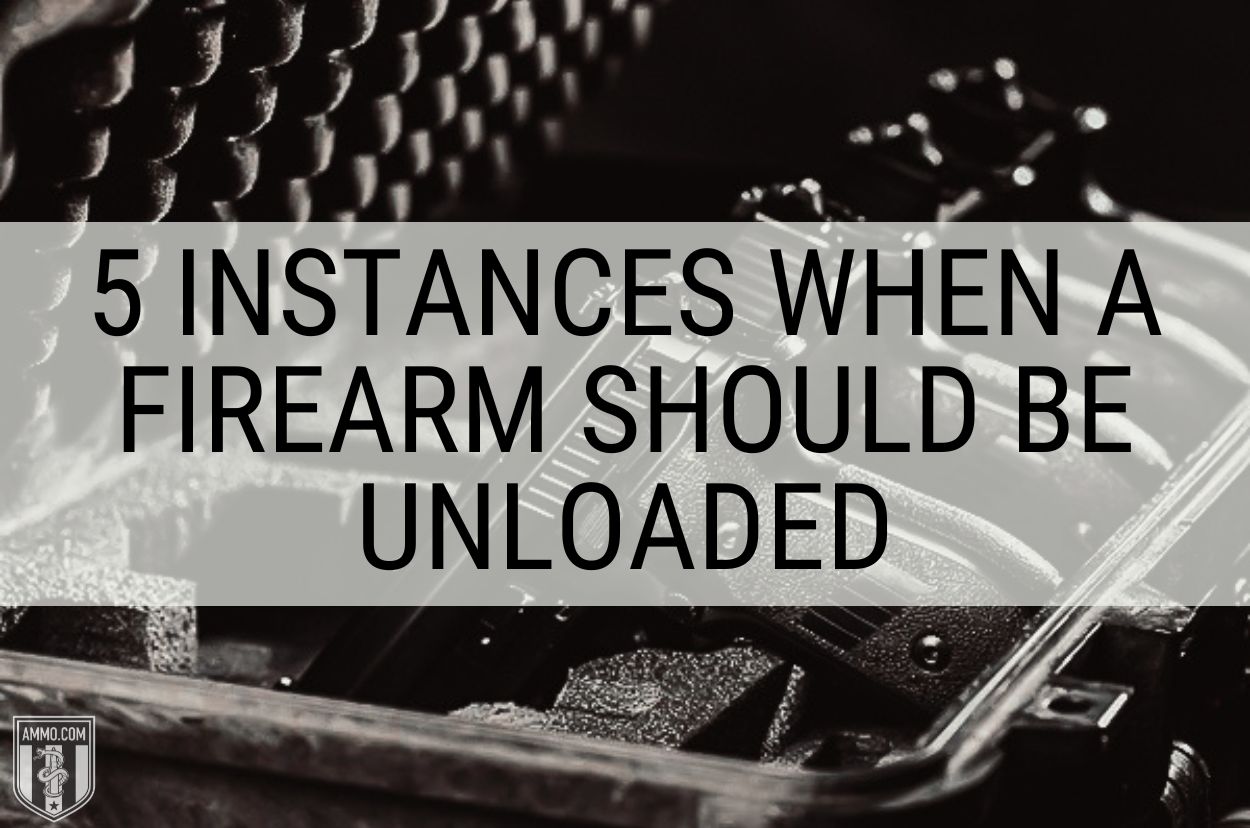
I’m a stickler for firearm safety. Whether you’re hunting in the field, honing your marksmanship at the shooting range, or simply staying prepared for a home defense scenario, you owe it to yourself and others to follow the rules of firearm safety.
Over the years, I’ve come across scenarios when it’s safest for everyone to keep an unloaded firearm. However, I also believe a gun should be more than just a paperweight if you’re forced to use it in a self-defense situation.
For simplicity's sake, this article will only focus on when a firearm should be unloaded. I’ve encountered five everyday situations where I believe it is best to keep a firearm unloaded. But just to be sure, this is not an all-encompassing list.
Let’s get started!
When Crossing a Fence or Other Obstacles
Growing up in the country, I’ve crossed many fences. I’ve also learned from a young age that it’s best to unload a gun before crossing a fence.
Thankfully, I’ve never had an accidental discharge while crossing a fence – but I have had my gun slide off of the wire I leaned it against and fall to the ground, which is a big no-no.
Since that incident, this is how I cross a fence by myself:
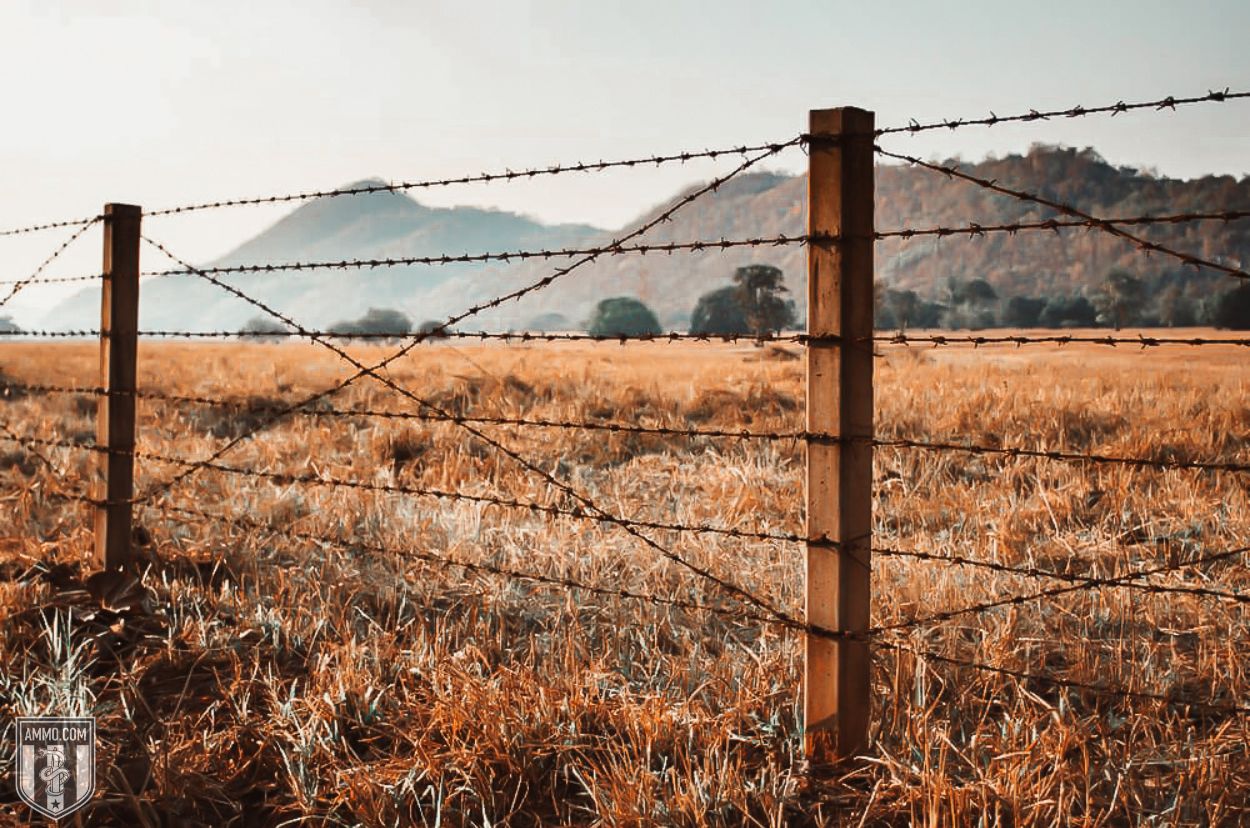
- Unload gun
- Ensure safety is on
- Lay gun on ground, within arms reach of other side
- Climb over fence
- Grab gun
- Reload and resume the adventure
The reason I still unload my gun when I’m by myself is simple: when I lay my firearm down, I understand that grass or other debris can create obstructions in its trigger guard and cause a negligent discharge. I want to avoid that at all costs, so I unload my gun whenever crossing any fence.
It’s also a simple process if someone is with me:
- Unload guns
- Ensure safeties are on
- One person takes guns, keeping both pointed in a safe direction while the other person climbs the fence
- Hand guns to the person who just climbed the fence (while still practicing safe gun handling techniques)
- Other person crosses the fence
- Both individuals reload firearms and continue adventuring in tandem
It may be inconvenient to unload and reload your firearm whenever you encounter an obstacle. Even so, that minor inconvenience is well worth the considerable increase in safety.
When Traveling in a Vehicle
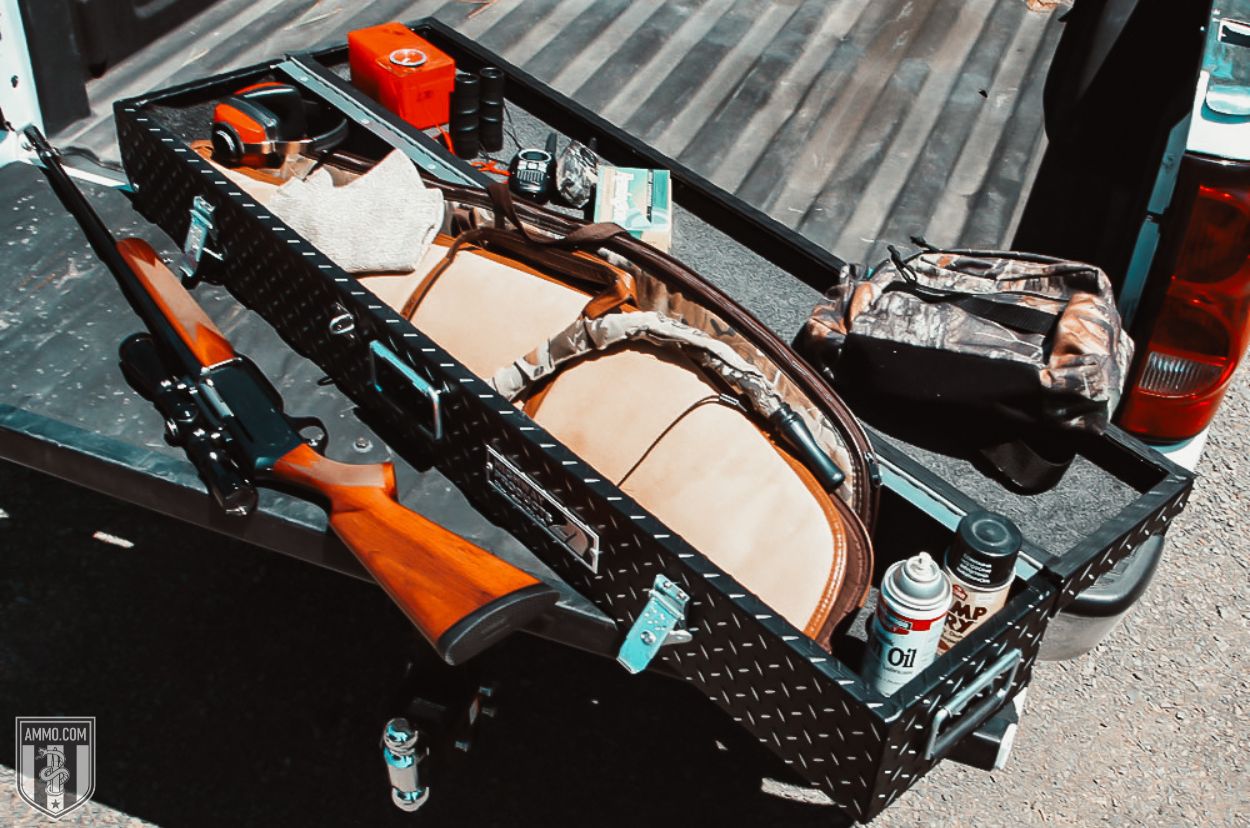
I’ve heard too many stories of hunters and firearm enthusiasts accidentally shooting a hole in their car door or floor because they failed to follow a basic rule of firearms safety: unload the gun before putting it in its case and driving down the road.
As a responsible gun owner, I follow all the gun safety rules and have a loaded firearm nearby or on my person just about everywhere I go. When heading to and from the field or gun range, I unload my shotguns and rifles before placing them in their cases to prevent negligent discharges while I’m driving.
These safety precautions kept me, my passenger, and law enforcement officers safe when I got pulled over for a busted taillight during an out-of-state hunting trip. Thankfully, they just wrote me a warning. We made it to our hunting spot in time!
One exception to this rule is when I’m carrying my semi-automatic handgun for self-defense. The difference is my loaded gun stays in the holster until I need it. Blessedly, I’ve never needed it. But if the time ever comes, I’ll be ready to protect myself and my loved ones with a loaded firearm.
When Storing the Firearm for a Long Time
I don’t care what type of firearm you own. If you plan to keep it in a lockbox or gun safe for an extended time, it should be unloaded. Ask any gunsmith, and they’ll tell you storing a loaded gun for a long time is not good for the firearm, even if you’re using proper ammunition.
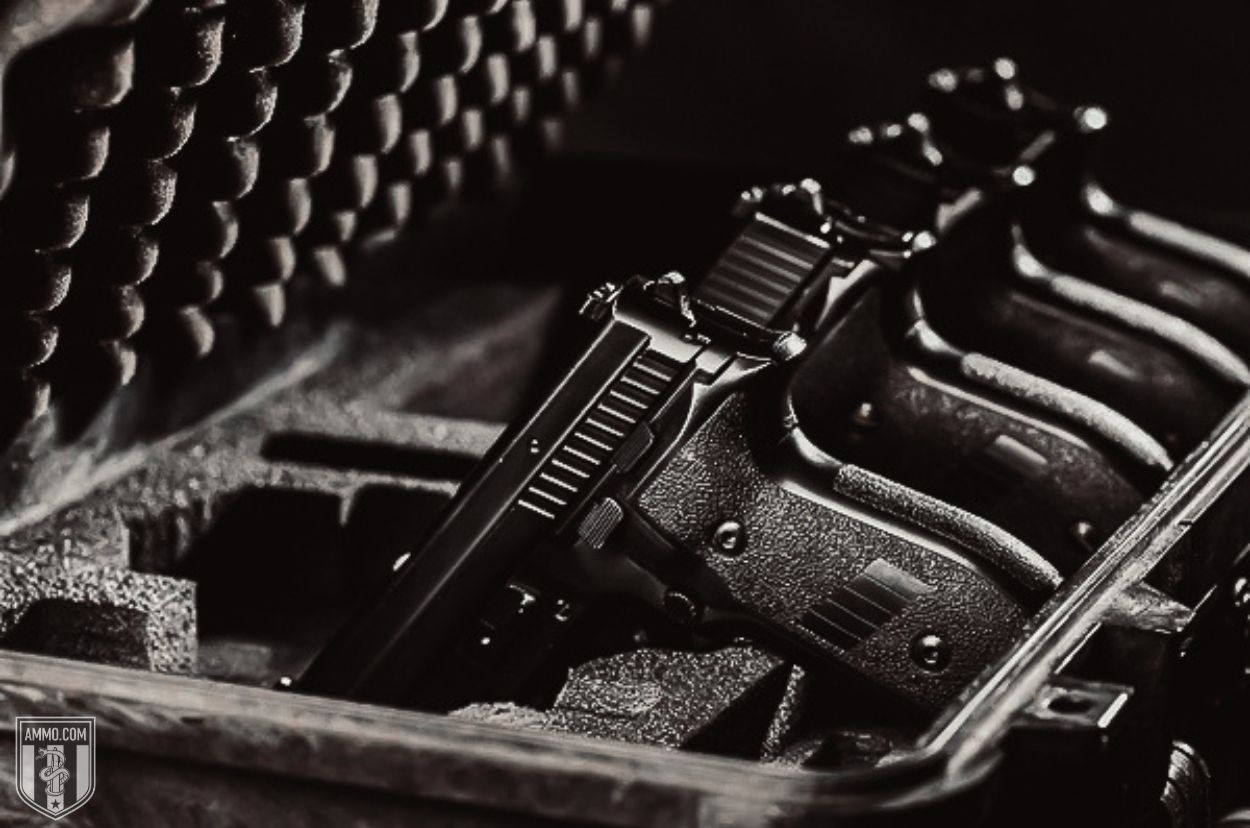
I always unload my guns before placing them in my safe for a month or longer because I likely won’t remember whether I left them loaded or unloaded. I don’t want someone else taking it out of the safe and assuming it’s unloaded. Keeping firearms unloaded is also better for their springs and pins. Remember: a firearm is a mechanical device that can fail due to minute changes.
I also like to store my firearms with safety devices such as trigger locks and empty chamber indicators. The latter makes it blatantly obvious when a gun is unloaded.
Per usual, there is an exception to this rule: my home defense firearm remains loaded at all times. Common sense tells me that I won’t have time to load my gun with proper ammunition when a bad guy is kicking down my door, so I keep it loaded while maintaining safe firearms handling techniques.
Safely storing your ammo is another consideration you should make.
When You’re Handing the Gun to Someone
We briefly covered this when crossing a fence, so I won’t beat a dead horse. Instead, let’s focus on when you're handing a firearm to someone for them to look at or when you’re at the range.
It doesn’t matter if you’re following all the gun safety rules: using ear protection and eye protection, shooting into safe backstops to prevent ricochets, etc. If you’re with someone who doesn’t know or practice gun safety, don’t endanger yourself or anyone else nearby by giving them a loaded gun. Instead, ensure that the firearm is unloaded by removing the magazine (if it has one) and clearing the chamber multiple times before handing it to the person.
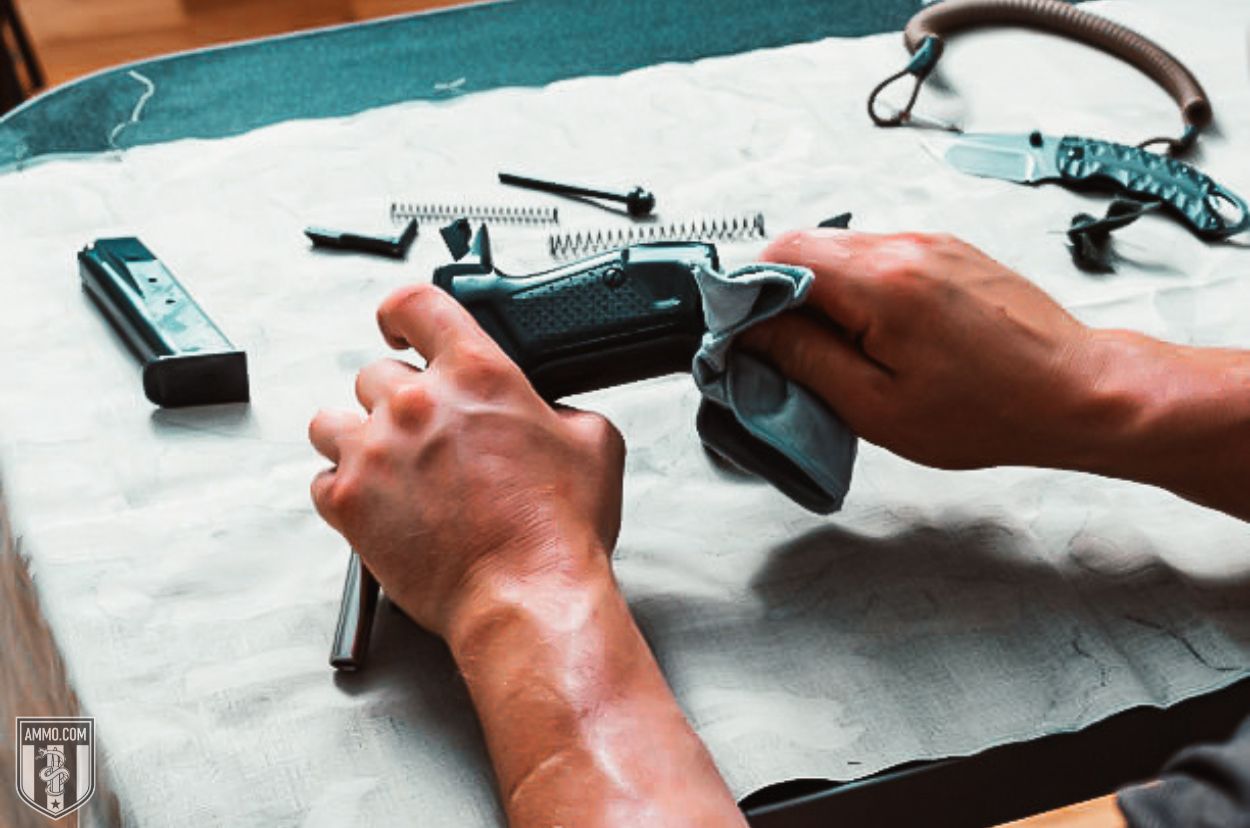
When Cleaning Your Firearm
Maybe it was just drilled into my head at a young age because I loved cleaning guns with my dad and grandpa so much, but I always thought it was common sense to ensure a firearm is unloaded before cleaning it. However, I’ve heard about and seen too many careless people have negligent discharges when cleaning their guns because they overlooked this vital precaution.
Consider this a friendly reminder to always unload your gun before cleaning it.
Frequently Asked Questions
Below, the team at Ammo.com has gathered and answered some commonly asked questions about when a firearm should be unloaded.
Should a firearm be unloaded while hunting?
No, a firearm should not be unloaded while hunting; otherwise, you’ll miss your opportunity to harvest the animal and feed your family. On the other hand, gun safety should always be followed while hunting.
When should you check to ensure that a firearm is unloaded?
You should always check to ensure that a firearm is unloaded.
Should a firearm be unloaded when calling game?
No, a firearm does not have to be unloaded when calling game; however, it should be pointed in a safe direction with the safety on.
What is the sequence for unloading a gun?
The sequence for unloading a semi-automatic firearm is to remove the magazine (if it has one), open the action, eject the cartridges or shells (depending on the type of gun), and ensure the firearm is empty by physically and visually checking the chamber and magazine well.
Is it safe to unload a handgun every time we get home?
Yes, it is safe to unload a handgun every time you get home, as long as you’re following the rules of gun safety.
What are the rules of gun safety?
The rules of gun safety are to treat all guns as if they are loaded, keep the gun pointed in a safe direction, keep your finger off of the trigger until you’re ready to fire, and know your target and what’s beyond it.
Why are the 4 Rules of Gun Safety Important?
The 4 rules of gun safety are important because they help keep everyone in the vicinity of the firearm safe.
Parting Shots
You now know when a firearm should be unloaded (and it’s not always when the anti-2A media says it should be unloaded).
As I mentioned, I’m a huge stickler for firearm safety, especially when introducing new shooters to this amazing lifestyle, and I also use my firearms for self-defense. This is why I believe there are times when it’s better to have a loaded firearm, and other times it’s better to have an unloaded gun.
Gun safety should always be at the top of mind for all shooters. Stay safe out there!
